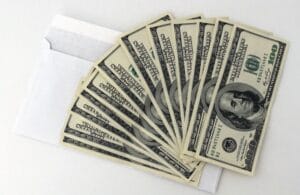
Traders deal with the flooring of the NYSE in New York City.
NYSE
BEIJING– For Americans aiming to play the China development story, purchasing the nation’s U.S.-listed stocks now bears a political danger that might cause delisting.
That suggests a Chinese business traded on an exchange like the Nasdaq would lose access to a broad swimming pool of purchasers, sellers and intermediaries. The centralization of these various market individuals assists produce what’s called liquidity, which in turn permits financiers to rapidly turn their holdings into money.
The advancement of the U.S. stock exchange over the years likewise suggests business noted on recognized exchanges belong to a system of guideline and institutional operations that can use specific financier securities.
As soon as a stock is delisted, the business’s shares can keep trading through a procedure referred to as “non-prescription.” However that suggests the stock is outside the system– of significant banks, deep liquidity and the capability for sellers to discover a purchaser rapidly without losing cash.
” The most useful thing for a normal financier to stress over is cost,” stated James Early, CEO of financial investment research study company Stansberry China.
” You’re most likely going to need to offer (a soon-to-be-delisted stock) up eventually, so make your bet now,” he stated. “Are you much better off offering now, or wait on some type of a bounce?”
The New York Stock Exchange revealed recently it would delist 3 Chinese telecoms giants called in President Donald Trump‘s executive order that banned U.S. investment in companies with alleged ties to China’s military.
Presuming trades would be settled through a third-party system on Jan. 7 and 8, the exchange stated it would suspend regional trading in shares of China Mobile, China Unicom and China Telecom prior to the marketplace open on Jan. 11.
The 3 business’ shares fell in New york city trading on Monday. Trading volume for the day neared that of the whole previous month, according to information from Wind Info.
However the business’ Hong Kong-traded shares increased throughout Tuesday’s session after the New York Stock Exchange reversed its delisting decision, mentioning extra discussions with regulators on the executive order.
Trump’s executive order offers U.S. financiers up until Nov. 11 to divest, or offer out, of impacted holdings. Most of the business called, if openly traded, are not noted in the U.S.
Stress in between the U.S. and China have actually intensified under the Trump administration. A disagreement that concentrated on trade simply over 2 years back has actually considering that spilled into innovation and financing.
It is uncertain how U.S. President-elect Joe Biden will manage monetary circulations in between the 2 nations. Experts anticipate his administration will rally standard U.S. allies to interact on putting higher pressure on Beijing to attend to longstanding problems about the nation’s unjust organization practices.
Delisting is not completion
Chinese stocks have actually been delisted from U.S. exchanges for factors aside from politics.
About a years back, aregulatory crackdown on accounting fraud led to a slew of removals Other Chinese business picked to go back to their house market where they might possibly raise more cash from financiers who were more knowledgeable about their organizations.
Last summer season, Chinese coffee chain operator Luckin Coffee was delisted from the Nasdaq after the business revealed the fabrication of 2.2 billion yuan ($ 340 million) in sales. The stock struck a 52-week low of 95 cents a share.
However shares increased even after going “non-prescription” and closed at $8.64 each on Monday.
The Majority Of the Chinese start-ups that have actually noted in New york city in the last couple of years are consumer-focused innovation business.
Chinese organizations stay crazy about the New york city market for the eminence, while international financiers are still purchasing in. China-based business raised $11.7 billion through 30 going publics in the U.S. in 2015, the most capital since 2014, according to Renaissance Capital.
The company’s analysis discovered that in 2020, the Chinese business that raised a minimum of $100 million had a typical overall return of 81%.








